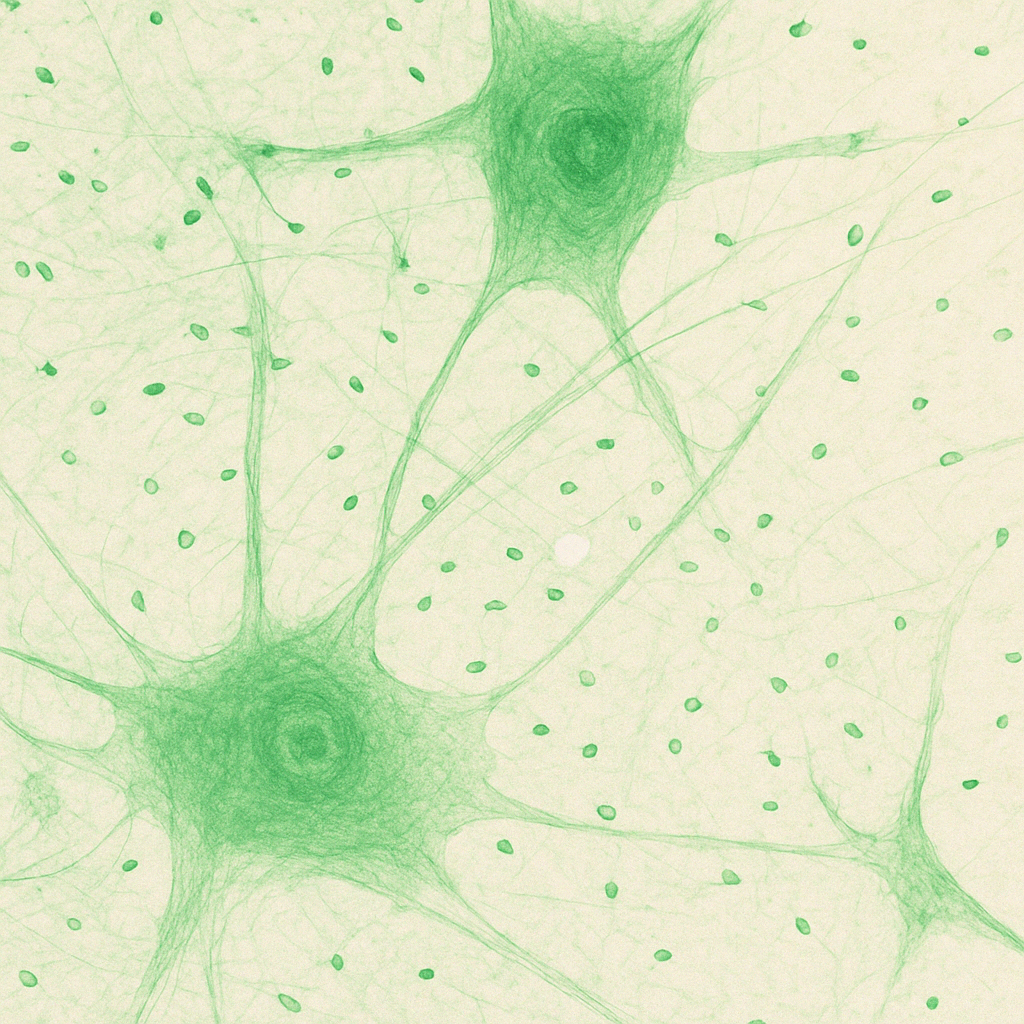"Researchers have discovered that when supplied with the proper nutrients, supplements, food and overall diet, your brain can literally regrow itself from the inside out, the process of which is know as neurogenesis."
Your life can be so much more than it is now. Imagine having increased energy, a better memory, and starting each day feeling positive and rested, ready to tackle whatever challenges may come. Recent advances in medical science have put this goal within reach.
You and everyone you know has a vast, untapped potential to live more fully. But to realize your greatest potential your brain must operate at its highest level.
The key to tapping this potential is neurogenesis, the process of creating new neurons, or brain cells. Neurogenesis is how the brain renews and upgrades itself.
Understanding neurogenesis is the most revolutionary discovery of neuroscience in the past century. Although there is still much to be learned, recent studies have revealed that the process can be enhanced and encouraged by individual lifestyle choices. To increase neurogenesis is to improve your entire life— how you think, feel, and act.
Research shows that high rates of neurogenesis are associated with:
+ Higher cognitive function
+ Better memory and faster learning
+ Emotional vitality and resilience
+ Protection from stress, anxiety, and depression
+ Elevated immunity
+ Enhanced overall brain function
Increasing neurogenesis dramatically improves everyday life at all stages and radically transforms what aging looks and feels like.

There are vast differences in how quickly people produce new brain cells and your rate of neurogenesis may be the single most important factor for a high quality of life. When neurogenesis is high, you are alive, engaged, expansive, fulfilling your potential. Your mind’s abilities are enhanced and your emotional vitality is strong. You are protected from stress and depression. You feel good and life is fulfilling. Immunity is robust. Your spirits are high and your outlook is positive.
With a low rate of neurogenesis, your brain shrinks, your life contracts, and you move toward memory loss, cognitive deficits, dementia, stress and anxiety, depression, reduced executive function, immunity, and myriad health problems. When neurogenesis is low your whole quality of life suffers. Having a high level of neurogenesis may be the most important thing you can do to cultivate a high quality of life.
This article focuses on foods and supplements that promote neurogenesis and brain health. A growing body of research shows that, beyond increasing neurogenesis, a neurohealthy diet protects against stress, depression, and Alzheimer’s.
The Neurogenesis Diet: Superfoods to Rejuvenate Your Brain From the Inside Out
All of the foods and nutrients in the neurogenesis diet are available as extracts. This makes including these in your diet more economical and practical. For example, a daily diet that includes fresh blueberries can be pricey, but two capsules of blueberry extract is much more affordable and easier to keep in the house. The following foods, nutrients and supplements have been shown to increase neurogenesis.
The Superstars: Blueberries, Omega-3s, Green Tea and Curcumin
The four most outstanding foods for increasing neurogenesis are blueberries, omega-3 fatty acids, green tea and curcumin. It’s worth considering making these a part of your regular neurogenesis diet.

1. Blueberries
It’s hard to sing blueberries’ praises highly enough. Blueberries act in so many ways to promote neurogenesis and protect the brain from cognitive decline that if blueberries were a drug, pharmaceutical companies would be bombarding us with ads to entice us to upgrade our brain with this neurogenesis supplement “miracle drug.”
Numerous studies show adding blueberries to the daily neurogenesis diet of mice increases neurogenesis significantly. Further, blueberries seem to protect against cognitive decline, inflammation, oxidation (free radical damage), radiation, and glycation. Generally it takes different substances to protect against any one of these things. That blueberries have so many effects is little short of astounding. Consuming about a cup a day is the equivalent human portion that animal studies have suggested.
Blueberries are packed with polyphenols, especially flavonoids called anthocyanins that stimulate neurogenesis through your diet. More specifically the anthocyanin dye, which causes the dark blue color, crosses the blood-brain barrier to stimulate neurogenesis. This anthocyanin dye is also present in black currents, blackberries, and bilberries, though these have not been studied as extensively.
Blueberries have been shown to reverse cognitive decline in both humans and animals. Mice bred to develop Alzheimer’s showed improvements in memory when fed blueberries, and two neuroprotective chemicals were higher in these mice. Humans with cognitive decline showed improvements after consuming blueberries daily. Aside from increasing neurogenesis, blueberries allow better communication among neurons, something called signal transduction, and they also protect against brain injury, stroke, certain neurotoxins, excitotoxicity, and so may help with Parkinson’s, MS, and other neurodegenerative diseases as well.
An entire chapter could be written on the glories of blueberries outside of a neurogenesis diet, for they have other health benefits as well, helping with heart and cardiovascular health, colon and digestive health, cancer protection, and DNA protection. A cup of blueberries a day may keep cognitive decline away.
Studies have shown that blueberry extracts are as effective as fresh blueberries. In most animal studies it’s the extract that is used in a neurogenesis diet. This makes daily blueberry intake possible for those who don’t have access to fresh blueberries.
2. Alpha GPC
Alpha GPC or Alpha-glycerophosphocholine (aGPC), as the name implies, is a choline-containing phospholipid isolated from soy. A wealth of research on this compound supports a role for enhancing cognitive function, increasing strength and stimulating the release of growth hormone.
Alpha GPC contains a lipid tail that permits the uptake and incorporation into neuronal cell membranes. The membrane-bound choline molecule supplies the necessary and rate limiting compound for acetylcholine neurotransmitter synthesis.
Though found both within the central and peripheral nervous system, cholinergic neurotransmission is the cornerstone for memory formation that takes place in a specialized brain region known as the hippocampus.
Studies in animal models and humans taking place since the 1990’s have shown administration of aGPC improves memory performance. One of the early human studies on aGPC attempted to replicate trials performed previously in animals.
The study gave subjects ten days of aGPC or placebo before inducing temporary amnesia with a potent drug called scopolamine. AGPC supplementation reduced the scopolamine-induced memory impairments as measured by subjects performed on memory and attention tasks.
Since this study, aGPC has become a focus of research age-related memory decline as well as other causes of memory dysfunction.
Recent studies on aGPC have shown a potential benefit to athletic performance. A Japanese study investigated the effects of a single dose of aGCP on hormone release in healthy young males. Surprisingly a single dose of aGCP resulted in a substantial change in growth hormone release within one hour.
At 60 minutes, growth hormone levels acute increased by 290% from the baseline hormone level and returned to baseline by the second hour. Also observed, was the growth hormone’s actions of increasing fatty acid oxidation, as indicated by rises in free fatty acids and ketone bodies. The authors proposed that the increase in circulating choline may briefly block the negative feedback mechanism governing GH release.
Short supplementation periods of 6 days have been shown to improve strength in college-aged athletes directly. A study conducted at the University of Louisianna used a crossover design that measured the force generated in deadlift and bench press style movements.
The study found a significant increase of 3% improvement in lower body strength with aGPC supplementation. The study cited the previous research of cholinergic transmission at neural-muscular as a potential mechanism, however, did not have direct evidence for the mechanism leading to improved strength.
The cumulative evidence from animal model and human studies support the role of aGPC as a well tolerated cognitive enhancing compound with ergogenic properties. The soy lecithin isolate contains a phospholipid that permits incorporation into neuronal cell membranes and utilisation as a cholinergic neurotransmitter precursor.
Associated with the increase in circulating choline levels was a transient elevation in growth hormone. Even a short period of supplementation with aGPC proved to be beneficial to muscle strength

3. Green tea
Green tea contains polyphenols, the most powerful of which is epigallocatechin gallate (EGCG), a type of catechin. Green tea’s polyphenols have been shown to increase neurogenesis, BDNF levels, and to have strong health benefits ranging from cancer prevention to fat loss, plus cardiovascular benefits, immunity improvement, and glucose reduction. 30-33 ECGC and green tea’s other polyphenols not only increase neurogenesis but, like blueberries and omega-3s, exert powerful antioxidant and anti-inflammatory effects as well. Green tea has clear cognitive benefits as a supplement in a neurogenesis diet and even improves working memory, which is one of the most difficult functions to increase.
It’s important to remember that although green tea has less caffeine than regular tea, usually half or a third as much, this amount is still stimulating, although it may seem less so because of L-theanine, one of the polyphenols present in green tea that produces relaxation and also increases BDNF levels. Some people like and want caffeine stimulation in their neurogenesis diet while others do not. For those who are sensitive to caffeine or want to avoid it, caffeine-free green tea extracts are available. Look for extracts standardized to at least 40% polyphenols, or even better, 98% polyphenols with 75% catechins and 45% ECGC.
Suggested amounts are 300–1,000 mg daily without caffeine. Higher amounts with caffeine should be monitored for overstimulation. Also, chronic caffeine intake, even in low doses, decreases neurogenesis, so eliminating or reducing caffeine is advised. You want the equivalent of 3–10 cups of green tea daily but not the equivalent amount of caffeine in your neurogenesis diet.

4. Adaptogens
Rhodiola Rosea - Studies document Rhodiola's impact on an individual's overall general physical and mental health. Rhodiola can be used to reduce stress, combat fatigue, increase mental performance and improve physical and mental fitness and resilience.
Siberian Ginseng - was traditionally used to prevent colds and flu and to increase energy, longevity, and vitality. It is widely used in Russia as an "adaptogen." An adaptogen is a substance that is supposed to help the body better cope with either mental or physical stress.
Ashwagandha - is perhaps best known for its stress-relieving properties. Several studies highlight this advantage, observing ashwagandha’s ability to decrease participants’ stress and anxiety levels significantly.






Leave a comment
This site is protected by hCaptcha and the hCaptcha Privacy Policy and Terms of Service apply.